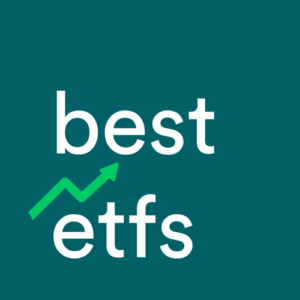Are ETFs just “old fashioned crap” in a “misguided fad”?
On The Australian Investors Podcast ‘2 Sense‘ this week, analyst Owen Rask and financial planner Drew Meredith, CFP dive into the one stock they would hold for 20 years (if we forced them).
Listen to The Australian Investors Podcast here
3 ASX shares to own for 20 years (because they couldn’t pick ETFs)
As can be expected, Drew picked two companies: Macquarie Group (ASX: MQG) and Wesfarmers (ASX: WES), and Owen agreed with Wesfarmers Ltd (ASX: WES) but added Washington H. Soul Pattinson & Co Ltd (ASX: SOL).
The Australian Investors Podcast, Australia’s best investing podcast for professionals and private investors, is back for “2 sense”, hosted by investment analyst Owen Rask and financial planner Drew Meredith, CFP (AKA Andrew Deremith). Join 58,000 investors who listen regularly.
This week’s winner 🏆 of our ‘best questioner name’ is Old Timer with a big tank, who said Peter Thornhill was a “legend” and asked if ETFs are a “misguided fad”.
Here are some of the investing questions we attempted to cover
| Bingo Bango Bongo | If you were only allowed to dollar cost average into one ASX share (individual stock) for the next 20 years, what would it be? |
| Zippington | Why would you have a allocation to bonds over a dividend ETF such as VHY? Don’t they both provide income? |
| Old Timer with a big tank 🏆 | Peter Thornhill wouldn’t touch an ETF with a bargepole!…..
I was just listening to your LIC podcast and it reminded me of Peter’s interview with Aleks on Big Swinging Stocks. He thinks ETFs are just rehashed managed funds (old fashioned crap) and does not like the trust structure and tax implications for ETFs. He’s an investing legend….is he right to avoid ETFs? Even though they may be cheaper, is the growth of ETFs a misguided fad? |
| Warren Munger | What is a ETFS? See our Everything You Need to Know About ETFs explained episode. |
| The Investorminator | Hi Owen, I am a young investor trying to put a portion of my pay into building an investment portfolio. I would consider myself a risk-seeking investor. I will buy and hold and I don’t want to touch this investment for at least 10 years to come. I’m a firm believer in technology and I think it will drive the most growth in the long term. Despite being more volatile, the Nasdaq 100 has outperformed the S&P 500 in the long term(10yrs+). When I researched what’s in the Nasdaq 100, I truly think it comprises some of the best companies in the world (lululemon is also in there, Drew). My current portfolio outside of super will be 80% NDQ and 20% EM (ASX: ASIA). My first question will be what is your guy’s opinion on using a Nasdaq ETF for the entirety of your core portfolio (as I don’t want any Aussie exposure outside of my super)? And my second question is would it be worth the hassle in the long term to directly buy US-listed NASDAQ 100 ETF (Invesco QQQM) compared to ASX-listed NDQ? The gap between management fees is quite large (0.15% for QQQM as opposed to 0.48% for NDQ). |
| Mr. SUPER confused | My question is regarding Super. From what I understand when you pass away if you have a normal super fund or industry fund your account/units is automatically sold and then cash will be distributed as per your will. Now if you unfortunately pass away during a severe downturn and intend on passing on/donating your super account balance, isn’t this the worst time to consider selling? We are all told to hold and never sell when the market drops 40-60%. From what I understand with a SMSF and a will stipulating actions you want to be taken. If for example you only held ASX shares at least the whole number of shares will be transferred to your beneficiaries. It just makes a lot more sense if you wish to pass on generational wealth or donate a substantial amount to charity to setup a SMSF where it doesn’t have to sell at the worst time. |
| [Funnyinvestmentpun] | Would it be reasonable to treat super as your entire core portfolio and therefore any private/ personal investment as satellite investing? Super in this scenario being the bulk of the portfolio, long term low cost etc, with personal investing being a much smaller amount, potentially higher up the risk curve etc. |
| Ten-bag Tea-bagger | If you partake in a Dividend Reinvestment Plan, what happens to the franking credits? Do you still get them, or not? |
Investors Podcast episode resources
- Join Owen’s Rask Core 🌏 – $9.99 per month
- Get financial planning advice
- Join ASA for just $49 and stand up for your rights
- Owen’s FREE investor bootcamp: bit.ly/rask-analyst




